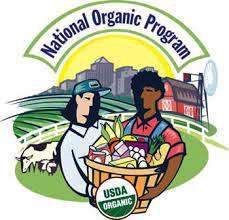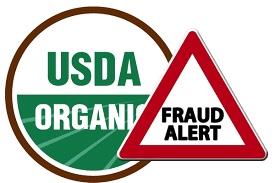 The Office of Inspector General of the U. S. Department of Agriculture has reviewed the National Organic Program with respect to the proposed Strengthening Organic Enforcement Final Rule. This measure includes
The Office of Inspector General of the U. S. Department of Agriculture has reviewed the National Organic Program with respect to the proposed Strengthening Organic Enforcement Final Rule. This measure includes
- Requiring risk-based oversight and enforcement;
- Protecting intellectual property;
- Mandating National Organic Program import certification;
- Enhancing record keeping and supply chain traceability
- Encouraging interagency coordination in enforcement of organic trade.
Since inception, the National Organic Program has relied on documentation and audits of paper trails. A number of high-profile cases involving deception and misrepresentation have arisen in past years. The difference in value between conventional and certified organic ingredients is an incentive for illegal claims but with minimal opportunity for detection.
The National Organic Program would be well advised to establish an assay program to detect non-GM contamination and to certify products as free of pesticides and disallowed chemicals and additives. In the absence of a structured sampling and laboratory assay program, the USDA is reliant on paper and electronic records that may be subject to fraud.
 Over three decades there has been no definitive evidence that GM ingredients are deleterious to health or are less nutritious than conventional analogs. The price differential for USDA certified organic products is only justified by consumer perception based on misinformation and demonization of GM technology.
Over three decades there has been no definitive evidence that GM ingredients are deleterious to health or are less nutritious than conventional analogs. The price differential for USDA certified organic products is only justified by consumer perception based on misinformation and demonization of GM technology.
The USDA-AMS has been remiss in marketing the value of the organic seal to egg consumers. This may be attributable to the fact that there are no inherent or quantifiable attributes differentiating organic from cage-free eggs.